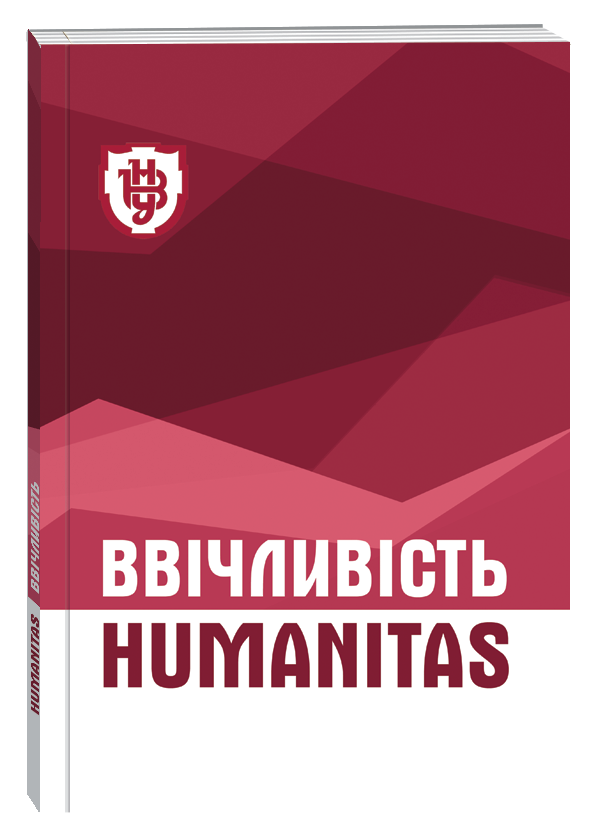CONCEPTUAL BASES OF THE SOCIAL COMPETENCE FORMATION OF FUTURE SOCIAL WORKERS
DOI:
https://doi.org/10.32782/humanitas/2021.1.7Keywords:
concept, methodological concept, theoretical concept, methodical concept, technological concept, professional training, future social workers, social competence, higher education institutionAbstract
The article reveals the essence of the author’s concept of the social competence formation of future social workers – students of the first (bachelor’s) level of higher education of the specialty 231 «Social work» in the field of study 23 «Social work» in the educational process of higher education institution combining four interconnected concepts (methodological, theoretical, methodical, technological) that contribute to the implementation of the leading idea of the study. The concept is considered as a holistic system of views, which helps to create appropriate conditions for professional training of future social workers and on the basis of which the social competence is formed in general and its components in particular. The leading conceptual purpose is to implement the ideas of harmonious development of personality in social and professional spheres, the formation of competencies for life-long learning (education), self-education and self-development, the ability to effectively interact with society and productively implement social roles; integration of formal, non-formal, informal education; social competence formation of future social workers in the process of professional training with ensuring a continuous process of improvement, self-improvement, self-development; implementation of the educational process modernization of higher education institutions on the basis of the competence approach. The article outlines the purpose and objectives of the study, presents the main features of the concept of social competence formation of future social workers in the process of professional training. The basis for the social competence formation of future social workers is defined by competence, system, synergetic, activity, student-centered, environmental, acmeological approaches and principles (general and specific).
References
Дубасенюк О. А. Акмеологічна концепція професійного розвитку педагога. Професійна педагогічна освіта: акмесинергетичний підхід: монографія/за ред. О. А. Дубасенюк. Житомир: Вид-во ЖДУ ім. І. Франка, 2011. 389 с.
Коломієць А. М., Лазаренко Н. І. Сучасні методологічні підходи в організації вищої педагогічної освіти. Науковий вісник Південноукраїнського національного педагогічного університету імені К. Д. Ушинського. 2016. № 3. С. 47–52.
Сидорук І. І. Модель формування соціальної компетентності майбутніх соціальних працівників у процесі фахової підготовки. Актуальні питання гуманітарних наук. 2020. Вип. 31, т. 4. С. 141–146.
Сидорук І. І. Теорія і методика формування соціальної компетентності майбутніх соціальних працівників у процесі фахової підготовки: автореф. на здобуття наук. ступеня д-ра. пед. наук, 13.00.05. Тернопіль, 2021, 36 с.
Сидорук І. І. Теорія і методика формування соціальної компетентності майбутніх соціальних працівників у процесі фахової підготовки: дис. на здобуття наук. ступеня д-ра пед. наук: 13.00.05. Тернопіл. нац. пед. ун-т ім. Володимира Гнатюка. Тернопіль, 2021. 699 с.
Сотська Г. Акмеологічний підхід у педагогічній освіті України. Edukacja dla przyszłości w świetle wyzwań XXI wieku. Bydgoszcz, 2017. С. 387–396.
Трубавіна І. М., Каплун С. О. Суб’єктність студентів як педагогічна умова формування їх пізнавальної самостійності в навчанні. Фундаментальні та прикладні дослідження: сучасні науково-практичні рішення і підходи: матеріали V Міжнар. наук.-практ. конф./Нац. акад. наук Азербайджана, Ін-т філос., акад. мистецтв у Банській Бистриці та ін.; за ред. А. Душного, М. Махмудова, М. Стреначікової. Баку; Банська Бистриця; Ужгород; Херсон: Посвіт, 2019. Т. 5: Міждисциплінарні перспективи. С. 288–292.
Якимович О. Н., Ільчишин Я. В. Вплив середовища вищого навчального закладу на професійне виховання майбутніх фахівців. Сучасні інформаційні технології та інноваційні методики навчання у підготовці фахівців: методологія, теорія, досвід, проблеми. 2016. Вип. 46. С. 350–354.







